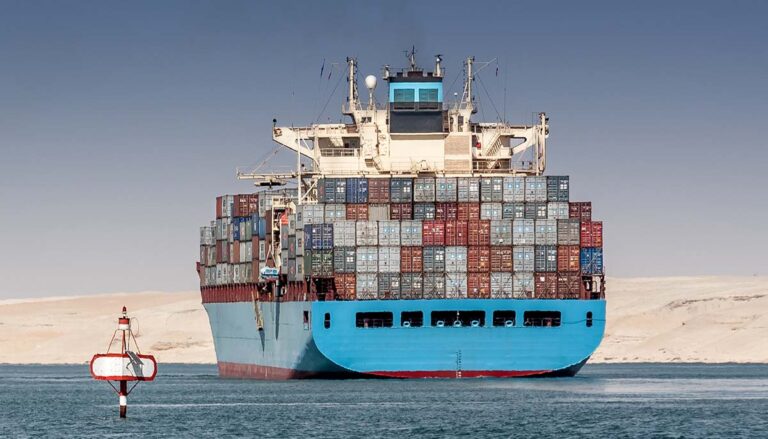Experts say that the massive ship blocking the Suez Canal could have an effect on practically all in-store products as well as higher natural gas and gasoline prices, as the vessel could take weeks to move.
How Did the ‘Ever Given’ Get Stuck?
Following heavy winds, a massive container ship called the Ever Given became horizontally wedged, running aground in the Suez Canal and effectively blocking all other traffic through the world’s busiest waterway.
Roughly 12 percent of all global trade moves through the Suez Canal, according to a report by NBC. The waterway connects the Mediterranean Sea with the Red Sea. The canal is an artificial sea-level waterway through the Isthmus of Suez. Without this passageway, ships are forced to take the longer route through the Indian Ocean around the Horn of South Africa to get to the Atlantic Ocean.
Last year, nearly 19,000 ships passed through the canal, averaging more than fifty a day according to the Suez Canal Authority.
Blockage Could Take Weeks to Clear
The enormous cargo carrier has a length of over 1300 feet, about as long as the Eiffel Tower is tall. The vessel spans 193 feet in width. The ship weighs over 200,000 tons and holds upward of 20,000 shipping containers.
Currently, hundreds of ships are in a holding pattern as all traffic through the Suez Canal is halted while tugboats struggle to dislodge the ship. Experts say they can’t exclude the possibility that it could take weeks to clear the gargantuan cargo ship, CNBC reported.
An attempt to re-float the vessel failed and will be tried again on Thursday. Dredging operations are also in progress. A specialized section dredger has arrived at the location.
Expect Shortages and Higher Prices
According to one container shipping expert, “basically anything you see in the stores” could be affected by shortages and higher prices. As hundreds of ships are in a holding pattern and others forced to take the longer route around South Africa, which adds another 10 days, the deliveries of all types of consumer products will be delayed from reaching stores. This includes food, clothing, shoes, electronics, car parts, furniture and more, according to logistics experts.
Roughly 5 to 10 percent of the global shipments of refined oil, crude oil, and liquefied natural gas pass through the Suez Canal. Economists expect that already rising prices at the pump could spike further as the delay of oil shipments through the canal creates a shortage.





